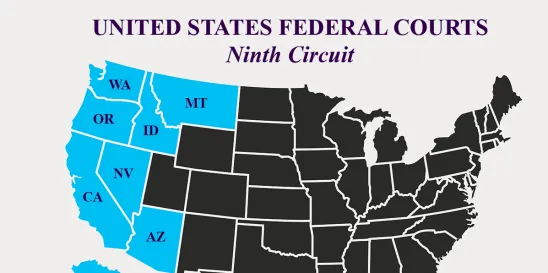A federal district court has entered a permanent injunction barring the State of California from enforcing Assembly Bill (AB) 51, California’s law that purports to preclude employers from requiring arbitration agreements as a condition of employment, as it is preempted by the Federal Arbitration Act (FAA). Chamber of Commerce of the USA et al. v. Becerra et al., No. 2:19-cv-02456 (E.D. Cal. Jan. 1, 2024).
Under the injunction, the State of California (including administrative agencies such as the California Labor and Workforce Development Agency and Civil Rights Department) is:
- Enjoined from enforcing sections 432.6(a), (b), and (c) of the California Labor Code where the alleged “waiver of any right, forum, or procedure” is the entry into an arbitration agreement that is covered by the FAA, 9 U.S.C. §§ 1-16; and
- Enjoined from enforcing section 12953 of the California Government Code where the alleged violation of “Section 432.6 of the Labor Code” is the entry into an arbitration agreement that is covered by the FAA.
As a result, AB 51 no longer stands as an obstacle to employers that wish to require arbitration agreements as a condition of employment in California, so long as the FAA applies and governs the agreement. No appeals or further legal challenges to the law are anticipated, and the court’s permanent injunction is expected to be the final chapter in the four-year legal challenge to AB 51.
Background
AB 51 was intended to prohibit employers from requiring individuals to sign, as a condition of employment or employment-related benefits, arbitration agreements concerning disputes arising under the California Fair Employment and Housing Act or Labor Code. AB 51 purports to apply to any arbitration agreement entered into, modified, or extended on or after Jan. 1, 2020.
As AB 51 took effect in 2020, a California federal district court granted the U.S. Chamber of Commerce’s request for a preliminary injunction and enjoined enforcement of AB 51 with respect to arbitration agreements governed by the FAA.
The State of California appealed the preliminary injunction to the U.S. Court of Appeals for the Ninth Circuit. In 2021, a divided Ninth Circuit panel initially held the FAA does not completely preempt AB 51. A year later, however, the Ninth Circuit unexpectedly withdrew its opinion on its own and granted a panel rehearing on the matter. The Ninth Circuit then concluded that the FAA does completely preempt AB 51 and affirmed the district court’s preliminary injunction. Chamber of Commerce of the USA et al. v. Bonta, 62 F.4th 473 (9th Cir. 2023).
In affirming the district court’s grant of a preliminary injunction, a majority of the Ninth Circuit panel stressed long-standing U.S. Supreme Court precedent that state rules that burden the formation of arbitration agreements are an obstacle to the legislative intent of, and thus preempted by, the FAA. The majority also noted the U.S. Court of Appeals for the First and Fourth Circuits reached similar conclusions when confronted with state laws that attempted to prevent parties from entering arbitration agreements.
The Ninth Circuit panel majority also rejected arguments from the State of California that it should sever clauses that were deemed preempted by the FAA and leave the remainder of the law intact. The majority explained that AB 51 could not be dissected and salvaged because the statute’s provisions all work together to burden the formation of arbitration agreements and, in any event, there was no authority in the legislation to sever the penalty portions of the law.
The matter was subsequently remanded to the district court, where the permanent injunction was granted after the U.S. Chamber of Commerce and the State of California stipulated to the permanent injunction and dismissal of the case.
Next for California Employment Arbitration Agreements
AB 51 cannot be enforced with respect to arbitration agreements governed by the FAA. What happens when the FAA does not apply?
While the scope of the FAA is broad (it generally applies to any business involved in interstate commerce), the FAA specifically exempts from its coverage “contracts of employment of seamen, railroad employees, or any other class of workers engaged in foreign or interstate commerce.” 9 U.S.C. § 1. This exemption was historically viewed as limited to workers in the transportation industry who actually transport goods across state lines, such as truck drivers, sailors, and pilots. However, the U.S. Supreme Court ruled in 2022 that the exemption may not be so limited and concluded that a supervisor who loaded cargo onto a plane destined to cross state lines fell within the exemption. Moreover, the U.S. Supreme Court has agreed to review another case that is expected to further analyze the contours of this exemption to the FAA. Accordingly, all eyes are on the exact scope of the FAA as the next battleground in the battle over the enforceability of employment arbitration agreements.







 />i
/>i

